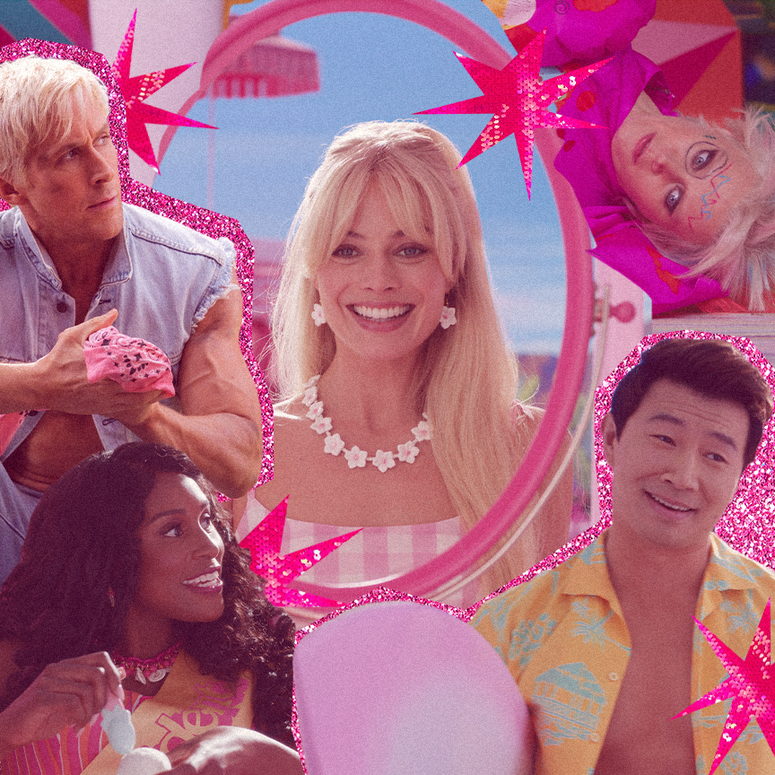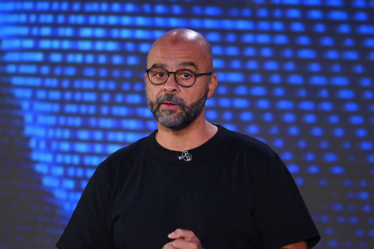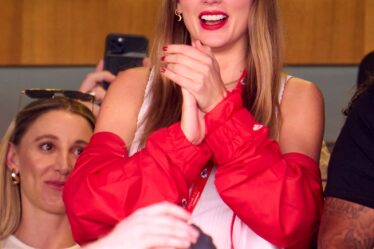
For weeks now, movie pundits have wondered just how much money Barbie and Oppenheimer would make on their combined opening weekend. As of Sunday, we have the answer: enough to buy a lot of Dreamhouses (and/or kitchen-free homes in Los Alomos).
The actual numbers are nothing short of staggering. Though final tallies won’t be available til Monday, it seems that Greta Gerwig’s Barbie has raked in about $155 million domestically and another $182 million internationally, exceeding even sky-high expectations. Christopher Nolan’s Oppenheimer has earned about $80.5 million domestically and $93.7 million internationally—a pretty stunning take for a three-hour drama about men in hats discussing theoretical physics.
That means together, the phenomenon known as Barbenheimer has made about $511 million worldwide, $235.5 million of which was earned domestically—enough to make this the fourth-highest-grossing weekend in American history, and the only one of those four weekends not driven by a Disney-released sequel. (The openings of Avengers: Infinity War, Avengers: Endgame, and Star Wars: The Force Awakens occupy the no. 1, 2, and 3 slots, respectively.)
Deadline has a rundown of all the box office records that have just been broken: Barbie now boasts the biggest opening weekend ever for a female director. It’s also the largest opening weekend for a movie based on a toy (beating out Transformers: Dark of the Moon). Oppenheimer has the biggest global opening for a biopic.
Read more
How Hair and Makeup Artist Ivana Primorac Brought Barbie to Life
48 hair pieces, 25 lipstick shades, custom eyebrows, and body paint were used to transform Margot Robbie into the world’s most famous doll. In a Glamour exclusive, Primorac breaks down key beauty moments from the film—including Ryan Gosling’s beachy tan and Kate McKinnon’s marker scribbles.
But those stats undersell what really was, and is, special about Barbenheimer. Heavily marketed as both these films have been, their massive success feels like an organic phenomenon, driven by actual enthusiasm from actual people. (What a concept!) Yes, Barbie is based on IP, and so, in a sense, is Oppenheimer. Both films are nevertheless idiosyncratic, auteur-driven projects, and not the sort of high-octane action franchise continuations studios seem to believe are the only sort of movie capable of making big money anymore. Both are also being received better than most wannabe blockbusters: critics (including Vanity Fair’s!) have reacted warmly to each film, while audiences have given each film an A Cinemascore.
What’s more, the apparent contrast between Barbie and Oppenheimer wound up working in both films’ favor; scores of moviegoers elected to see not one movie but both, dressing up in midcentury hats and suits as well as their Barbie best. “People recognized that something special was happening and they wanted to be a part of it,” Michael O’Leary, president and CEO of the National Association of Theatre Owners, told CNBC. “Our partners in the creative community and at the studios gave audiences two uniquely different, smart and original stories that were meant for the big screen, and movie lovers responded by gathering friends and family and heading to their local movie houses across the nation.”
The singularity of Barbenheimer will be difficult if not impossible to recreate, though that doesn’t mean studios won’t try. We can only hope, then, that they take the right lesson from this weekend: as Nicole Kidman keeps telling us, people want to go back to movie theaters. They’re simply more willing to return if it means getting to see something they haven’t seen a million times before.



